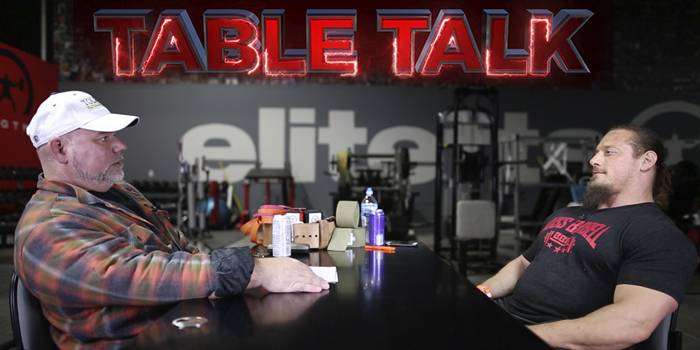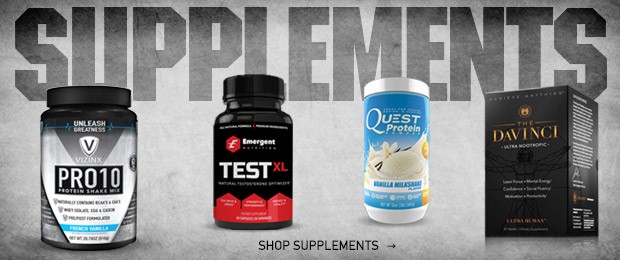
Dan Green joined Dave a little over a year ago for a full Table Talk series, in which he answered questions on powerlifting, nutrition, and numerous other strength training topics. Now he's back at the table with Dave again, answering more of your questions. In this first video, Dan and Dave take on the topic of nutrition:
"What kind of diet do you use and how many grams of protein, fat, and carbs do you typically take in each day?"
Dan frames his answer within the off-season, when he keeps his bodyweight around 258 pounds so he can cut weight for a meet and compete in the 242-pound weight class. For his nutrition, he consults Stan Efferding and follows the plan that he sets for him. Currently that plan is roughly 4500 calories allocated as 25% protein, 25% fat, and 50% carbohydrates. For each day that's roughly 250 grams of protein, 110 grams of fat, and 600 grams of carbs.
Dan explains that the way Stan approaches nutrition is with a distinction between what he calls the "horizontal diet" and the "vertical diet." The horizontal diet consists of the variety of foods needed to cover your body's essential needs, such as micronutrients. Once you've covered the list of foods on the horizontal diet, you still have to reach your caloric needs, which is where the vertical diet comes in. This is what makes up the bulk of food consumption. For Dan, the vertical diet is mostly steak and white rice (which he says still hasn't gotten old yet).
This approach is easy for Dan and it keeps him within range to cut to 242. Training at a lighter bodyweight takes strength off his lifts, and as long as he's competing in the 242-pound weight class instead of the 220-pound weight class, he doesn't have to be incredibly strict with his diet. In an ideal world he says that the cut would only be 10 or 15 pounds, but his current training weight is relatively new and is still an experiment to see how things go. While Dan has a lot of experience cutting weight, he discourages other lifters from doing so unless totally necessary, especially beginners. His belief is that managing your bodyweight should never in any way restrict your training. If the goal is to get strong, doing so continuously requires gaining weight. You have to allow yourself to get bigger. So don't try to stay in a lighter weight range or cut weight unnecessarily if you want long-term strength development.









